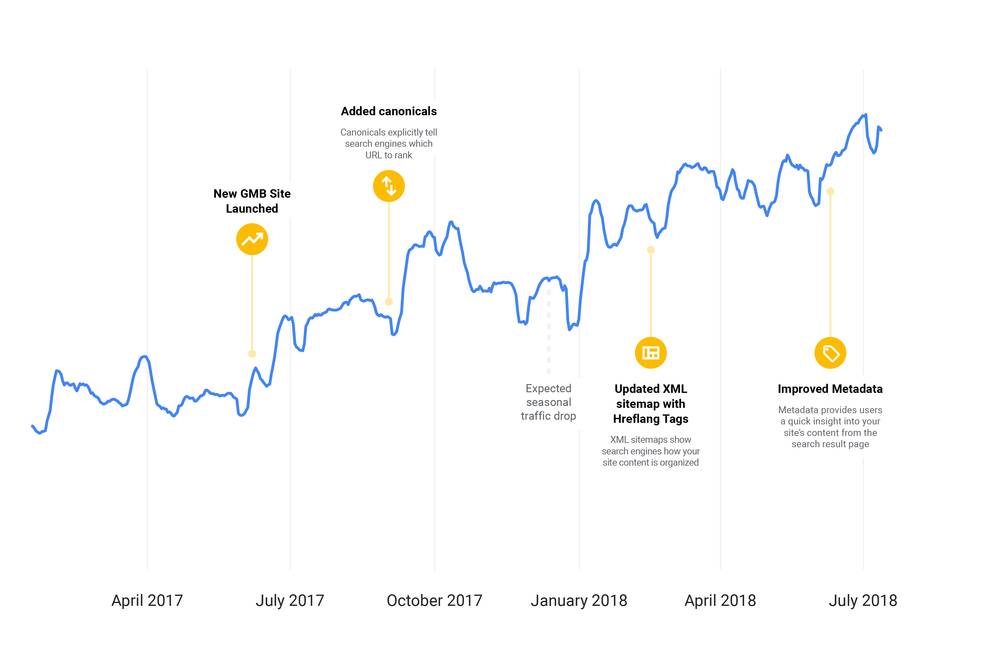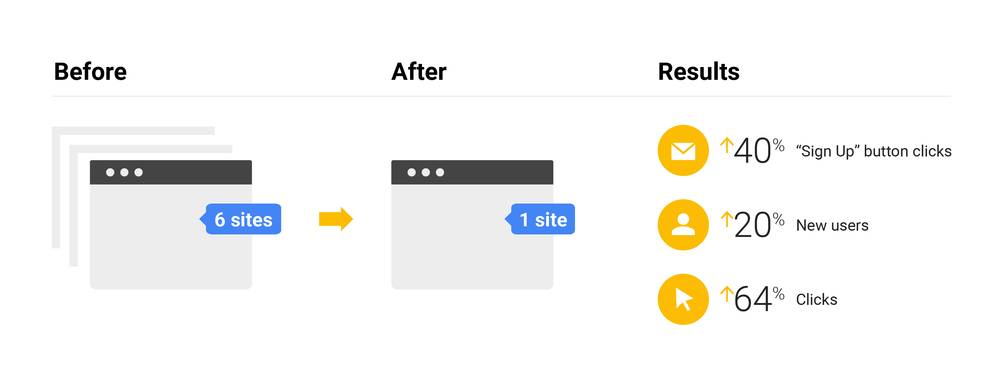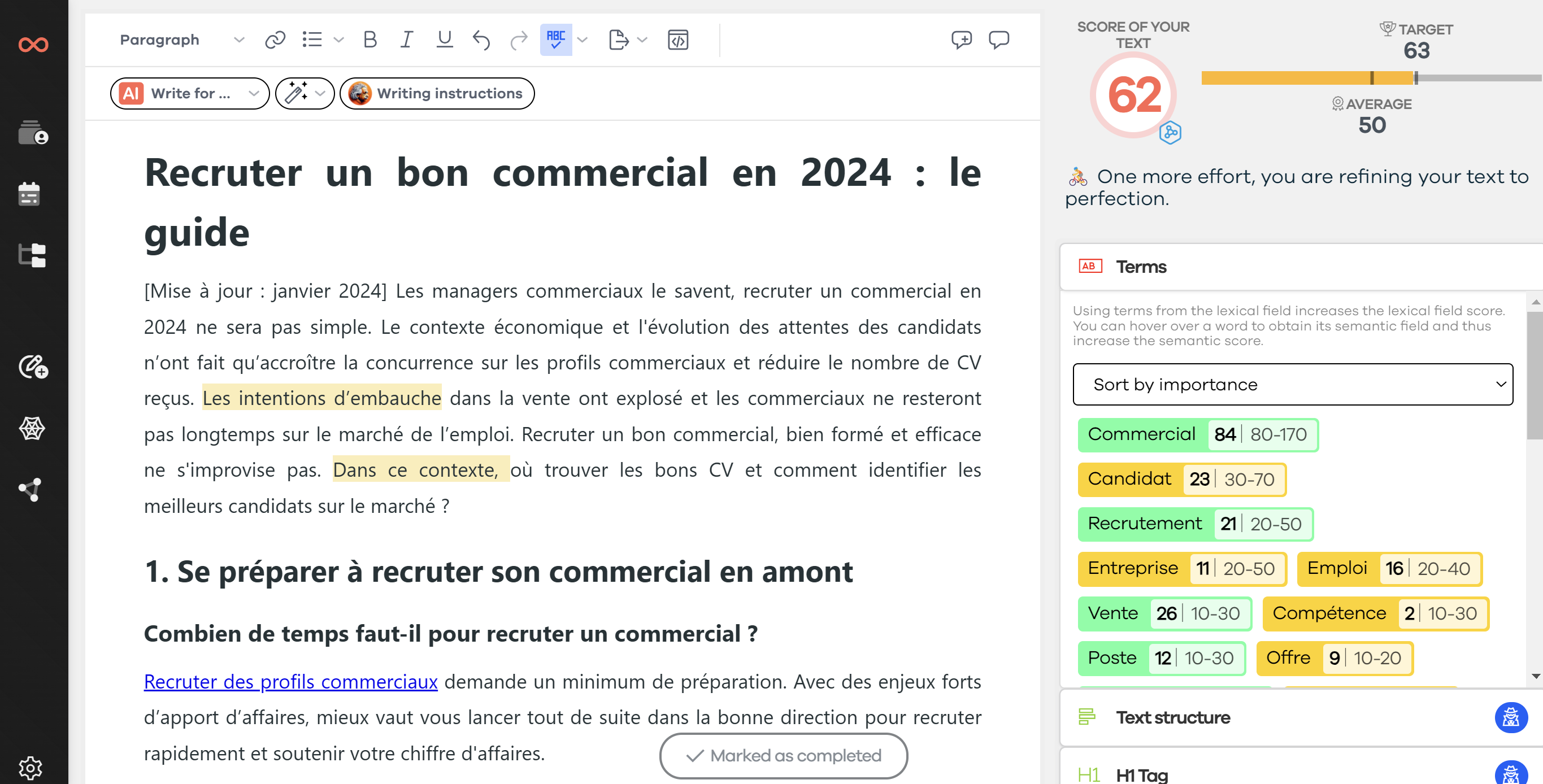SEO consultants often suggest to their clients the creation of a second website, but is it really a good idea? When I was working in an agency, we always considered the creation of a second site as superfluous.
This week, I came across an article by Sean O’Keefe, a data scientist at Google. He shared how Google thinks and manages their organic ranking for their 7,000 internal sites. [1]

I must admit I was pleasantly surprised reading this post. My team and I have been advising our clients for years to consolidate their online presence, and Google has finally confirmed the correctness of our strategy.
"Duplicating content is not only confusing for users, it's also confusing for search engines," Google stated, before adding: "Creating a single quality site instead of multiple microsites is the best way to encourage organic growth over time."

Of course, we take Google's official advice with caution. Indeed, Google's intentions are not always altruistic, but in this case, Google has no stake in the game.
So, if you're considering creating a second website for a new activity or a microsite for an upcoming event, allow me to share the advice we've been giving our clients for years and which has recently been approved by Google.
🚀 Express Reading: Summary of what you will learn in this article
In this post, we weigh the pros and cons of creating a second business website.
- Why go multisite? 4 reasons that usually push companies to want to create a second website.
- The 2 main SEO disadvantages of multisite: starting all over again and a significant budget in the long run.
- The 3 SEO benefits of keeping a single site: the company's reputation, brand image, and resource optimization.
- When should you launch a second site under another domain name? 3 specific needs to consider.
🤔 SEO Strategy: Should I create a second site?
In general, SEO consultants or agencies consider creating secondary sites or microsites to:
- Promote an upcoming event.
- Introduce a new range of products.
- Improve ranking in multiple domains.
- Create links to the company's main website.
The reasoning is usually as follows: the element is so important or so distinct that it does not fit into the brand's current marketing strategy. Specialists think that the brand's customers are not interested in this new element, or that new consumers do not want to visit the main site.
At first glance, this may seem like a good idea... However, in most cases, a second site drains resources and does not provide the expected SEO boost. And here's why!
❌ Reasons NOT to create multisites.
Let's look at some misconceptions together and see what really happens when marketing specialists decide to create a second website.
1. Creating a new site means starting from scratch
Whether it's about ranking or backlinks, it's important to realize that a new site starts from scratch.
Establishing trust and positioning yourself as an authority takes a lot of time (see our article on topical relevance). Building enough SEO value for backlinks to be effective takes even more time.
Google ranks links based on the authority of the site from which they point. Using a lot of backlinks on a new website may make Google's algorithm suspicious.
2. A second site requires more resources
Creating a website requires a lot of thought and planning. Before letting web developers and content creators get to work, there are several decisions to make, especially in terms of target audience and user experience.
Moreover, maintaining a quality website is an ongoing job. Planning and creating content that strengthens the site's authority, improves its visibility on search engines and click-through rate, generates traffic, and converts visitors into customers, requires continuous SEO efforts, competitive research, and A/B testing.
A second website therefore requires twice as much effort and resources. There's no secret, two websites mean an SEO and marketing budget at least twice as big. Not to mention the installation and cost of various essential tools and the technical maintenance cost of the CMS (WordPress, Joomla, Drupal…)!
✔️ The advantages of a single website
On the other hand, the benefits of consolidating your online presence are significant.[2]
1. More effective notoriety
Backlinks are among the important metrics. However, Google is increasingly neglecting them, due to the fight against spam. To be effective, they must be authentic and come from reliable sources.
Rather than allocating part of your SEO budget to your new site, invest in building partnerships, sharing content, and creating sincere and relevant relationships with other websites.
2. Capitalizing on a brand image
In addition to being beneficial for your company, the brand image has an indirect benefit for SEO. A better brand image increases user engagement (visit time, bounce rate, etc.). If you end up with multiple sites, you will then have to work harder.
3. Efficient use of resources
When time and attention are focused on a single site, the return on investment of your content marketing is greater. Let your team focus on a single website, a single SEO roadmap, and a single content strategy. This will allow you to achieve a very successful web presence. Your product ranges and events will benefit from it.
💡 When to create multiple websites?
Sometimes, even if it is rare, it is advantageous to have multiple sites. Here are several examples:
- VERY different customers — even though cross media is very effective, it happens that a product line is totally at odds with the values of the original clientele.
- VERY different offers — if your client sells both electric scooters and blender robots, a second site is necessary.
- The boss decided it. In this case, don't hesitate to share this article with the management team!
On the side of the SEO benefits of multisites, I see a few:
- Rank multiple URLs on the first page of search results (SERP) for target keywords, with multiple domain names: SERP cannibalization technique.
- Create high-quality links to the main website through your multisite network. This technique is known as PBN (Private Blog Network).[3]
Creating and managing multiple sites require significant resources, money, and a lot of time. Here are my recommendations and explanations. They are the same as Google's!
And you? Do you need multiple sites? Do you usually recommend to your clients to set up a second site?
🙏 Sources used to write this article
[1] https://www.thinkwithgoogle.com/marketing-strategies/search/google-website-seo/
Need to go further?
If you need to delve deeper into the topic, the editorial team recommends the following 5 contents:

